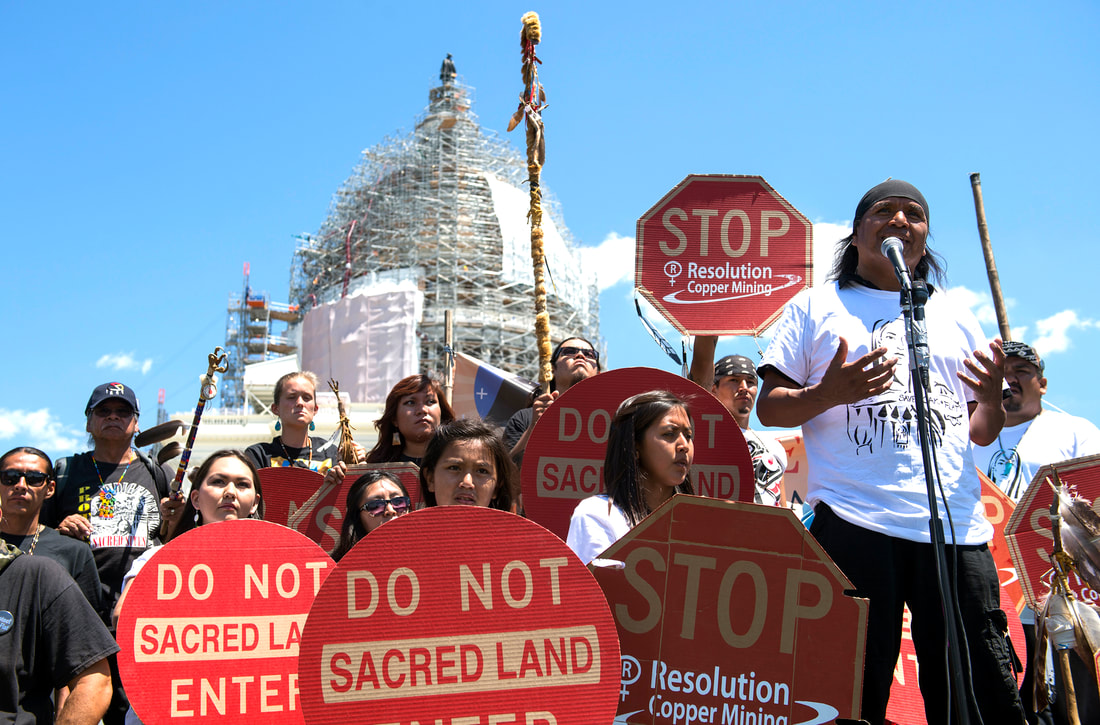|
Protect the 1st filed an amicus brief today asking the Ninth Circuit Court of Appeals to overturn a ruling by the U.S. District Court in Arizona that would allow Resolution Copper, a foreign mining consortium, to mine copper from land sacred to the Apache – and turn it into a sinkhole.
The district court found that the destruction of the sacred land would not amount to a “substantial burden” under the Religious Freedom Restoration Act (RFRA), which protects the freedom to worship as guaranteed by the First Amendment. Protect the 1st notes in this filing that the district court found the following facts, (emphasis added):
General counsel of Protect the 1st Gene Schaerr noted the irony in the district court’s findings and its ultimate conclusion that they did not amount to a substantial burden on religion: “Somehow, closing off a portal to the Creator is not a substantial burden on the practice of this religion? Imagine telling Catholics, Jews or Muslims, ‘sorry, we’re going to have strip away your right to visit the Vatican, the Wailing Wall or the Al-Aqsa Mosque, and turn it into a sinkhole. But don’t worry, this won’t be a substantial burden on your religious liberty.’” He added: “If allowed to stand, the district court’s ruling would be degrade the religious-liberty rights of all religious Americans. It is also illogical: The court takes conditions that are sufficient to find a substantial burden and then makes them necessary.” Protect the 1st supported the argument of the plaintiffs, the Apache Stronghold, that the district court erred in divining that the standards of RFRA and the Religious Land Use and Institutionalized Persons Act (RLUIPA) – declared by the Supreme Court to be “the same standard” – have “evolved differently.” “The equivalency between these two statutes is settled law,” Schaerr said. The proposed mine was made possible by a last-minute rider slipped into the must-pass Department of Defense budget in 2014 that swaps private land for public land in the Oak Flat parcel of the Tonto National Forest. Protect the 1st noted that a skein of issues, including an 1852 treaty between the United States and the Apache, was largely swept aside by the district court’s ruling. “For the religious liberty of all, we must uphold the religious liberty of a few,” Schaerr said. The brief can be read here. Comments are closed.
|
Archives
June 2024
Categories
All
|
ABOUT |
ISSUES |
TAKE ACTION |



 RSS Feed
RSS Feed